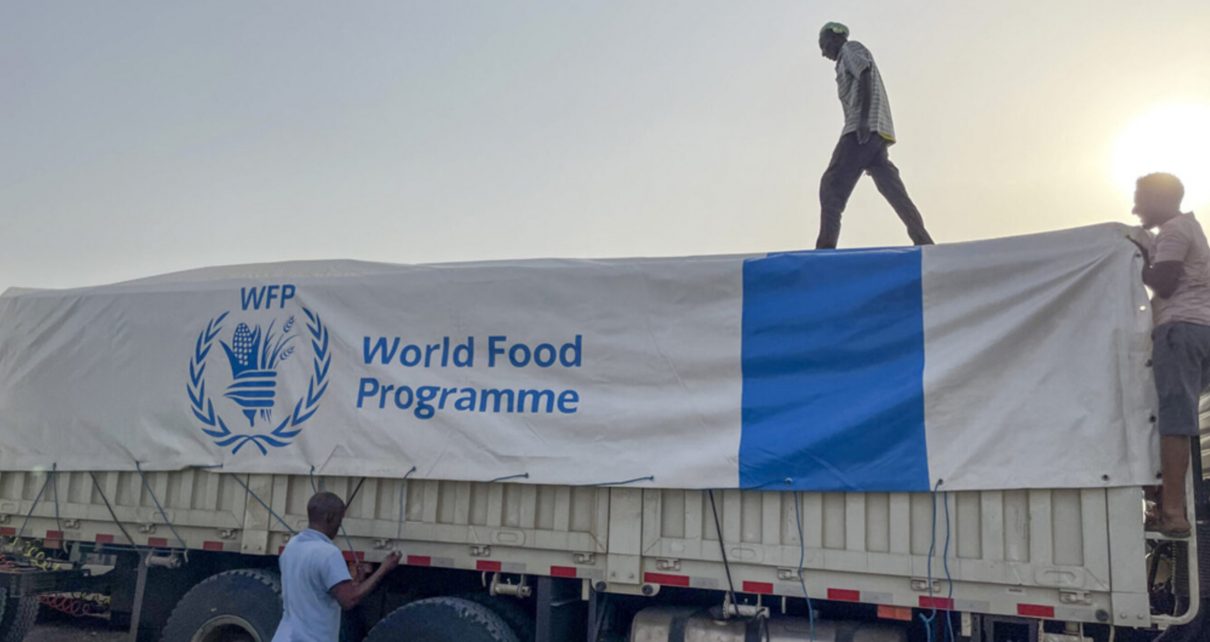The bustling Malanville border crossing in northern Benin, a significant route in West Africa, has come to an abrupt halt. Typically, trucks laden with vital supplies traverse this passage into neighbouring Niger, one of the world’s most impoverished nations.
Presently, the situation is one of stagnation. A lengthy queue of trucks stretches back 25 km (15 miles) along the banks of the Niger River, which demarcates the boundary. Truck drivers, marooned for weeks, hang their clothes between vehicles. In an attempt to circumvent border controls, small traders load their merchandise onto wooden boats and brave the rain-laden river.
This gridlock serves as a stark indication of the repercussions of sanctions imposed by the regional bloc ECOWAS on Niger in response to a military coup on July 26.
These sanctions aim to coerce the junta into reinstating President Mohamed Bazoum. However, according to aid organisations, authorities, and locals, they have unintentionally increased food costs in Niger during the lean season, impeded industrial activities, and threatened medical supplies.
“We don’t know if we’ve been taken hostage or what,” lamented Soulemane, a trucker from Niger who has been trapped at the border with his cargo of sugar and oil for over 20 days. “There’s no food, there’s no water, and there’s nowhere to sleep.”
Nonetheless, the sanctions’ impact on the junta’s popularity remains uncertain. Despite the measures, thousands of individuals took to the streets last Sunday in support of the coup, with some displaying anti-ECOWAS placards.
The experience of Mali indicates that ECOWAS sanctions can inadvertently bolster military leaders’ standing. Similar sanctions were imposed on Mali after coups in 2020 and 2021, leading to increased support for its military leadership.
Approximately 6,000 tonnes of essential goods from the United Nations’ World Food Programme remain stranded outside Niger. This includes cereals, cooking oil, and sustenance for malnourished children, according to Djaounsede Madjiangar, the programme’s regional spokesperson.
Niamey residents revealed that while food still graces the shelves, prices have surged. Following the announcement of sanctions, rice prices surged by 21%, while sorghum prices escalated by 14%, according to the WFP.
The WFP’s supplies were intended to alleviate a pre-existing hunger crisis in Niger, a nation grappling with an Islamist insurgency that has displaced hundreds of thousands.
Currently, around 3 million people are struggling to afford even a single daily meal. This crisis threatens to force an additional 7 million individuals into the same predicament, the WFP cautioned.
Madjiangar expressed concern: “We could end up with 10 million people who are not able to feed themselves. Humanitarian needs are increasing.”
While WFP and UNICEF operations in Niger remain uninterrupted for now, both agencies caution that time is running out. Potential disruptions could spell catastrophe for a country with one of the highest child mortality rates globally.
UNICEF containers now languish at the border and Cotonou port in Benin. Crucial cold-chain equipment and vaccines risk losing effectiveness, including vital doses against the fatal rotavirus infection in children, the agency conveyed through email correspondence.
Meanwhile, the impasse between ECOWAS and the junta continues. The regional bloc has issued a military intervention threat should negotiations and other pressure strategies fail.
Coup leader General Abdourahmane Tiani voiced his sentiment on the matter, asserting that “these sanctions are not designed to find a solution, but to bring us to our knees and humiliate us.”
These sanctions extend beyond jeopardising Niger’s food and aid supplies. Nigeria’s power supplies have been cut, jeopardising medical care in hospitals, General Tiani disclosed.
Entrepreneur Maxime Kader from Niamey disclosed that he was compelled to halt the sale of poultry incubators due to a shortage of plywood and power outages.
The consequences of the sanctions have also affected large-scale infrastructure projects. The freeze on regional financial flows has halted construction on a Chinese-led dam project intended to bolster food security.
Projections for this year anticipate an economic growth rate of 7%, based on the anticipated launch of an oil pipeline from Niger to Benin. However, the coup’s impact on work related to the PetroChina (601857.SS)-backed project remains unclear. PetroChina did not respond to inquiries.
At the Malanville crossing, Reuters correspondents observed vehicles marked with WAPCO,” a company linked to the pipeline project. While some vehicles were permitted entry into Niger, others remained stranded in the queue.
Numerous border-bound drivers are preparing for a prolonged wait. Makeshift tents have been erected, charcoal stoves provide sustenance, and some individuals scavenge for food as their resources dwindle.
Nigerien trucker Mahamat Addi Saleh summed up the situation: “They have to review this situation because there is no other way to go. This is where everyone passes through.”
(Adapted from a REUTERS report)


